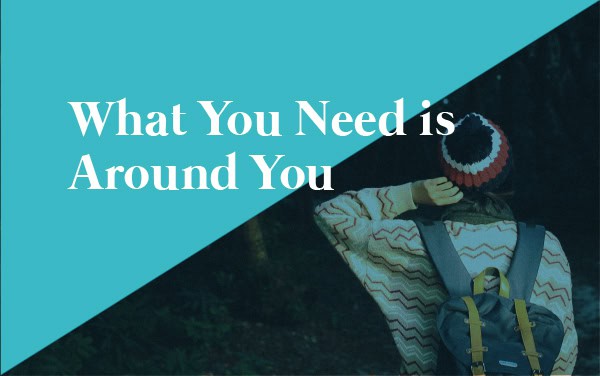
by RE Helper | Dec 15, 2024 | Alcohol Free, Blog, Inner Peace, Nature
Today’s blog entry is from Hannah J. Carter. Hannah is a member of Café RE Blue.
What You Need Is Around You
By: Hannah J Carter / 10-31-24
We live in the day-and-age of “order this, email that, swipe here, scroll up, notify this, remind me of that, DING, DING, ALERT, ALERT, ALARM, ALARM”. It is all…way too much. It is all…not good for us. Sometimes the more modernized our lives become, the more unpleasant and unsatisfying they become. We find vices when the world becomes all too overwhelming. When we feel like there is no pause button. I drank my troubles away; or so I thought I did.
Do you purchase your issues away? Eat your trauma? Smoke your shame? As a society we look for ways to unplug. We look for the answers to our problems; sometimes desperately. Life at times can feel like we are all swimming to keep our heads above the water line with no land in sight – but why? Why are we, to what seems at times, hopelessly swimming to a shoreline that is never going to come? What you need is already all around you. What you need has been here all along. Sometimes when we sit and look around, the answers come to us. We just need to sit, un-plug, un-send, un-tweet, un-attend, un-wind, and un-human ourselves to see the answers we need are already here.
Life Is A River: Flow or Resist
I don’t have to say it but we all know that life gets well….”Lifey”. At times it feels like we are the universe’s personal joke and when you are already down, you get kicked again for the fun of it. While that may not be a news flash to you, this may be. You get the choice of accepting life or not accepting it; and that choice is only yours to make. That tree limb that fell on your car during that last thunderstorm, will not re-attach itself to the tree if you are angry enough.
Life does not offer a reverse button when our emotions are spiraling. Unfortunately, that is just not a matter of fact. Fortunately, you have the choice to flow with the river of life, like a leaf floating downstream, or resist it, like the lifeless boulders on the river’s edge. We all know the easier option. We all know the option that will help keep us sober. Accept the flow of life and you too will keep moving forward.
Perfectionism Is Overrated
I remember before every social event I would drink. I would drink to feel cooler, to feel more social, to feel more perfect for the party, searching relentlessly for perfectionism with my ex-partner-in-crime, alcohol. Want me to jump ahead and ruin the end of the story for you? Shocker! It didn’t work. It didn’t work for many reasons. Nature reminds us that perfectionism is sinister, it’s overrated.
Perfectionism is a concept that simply does not exist in nature. A tree is never perfectly straight. No leaf mirrors the next. Nothing is perfect yet it’s the most perfect system on this earth. You are whole the way you are. Your “imperfections” are actually your superpowers keeping you closer to the light, letting you absorb more energy, and leaning you towards the right direction. You are enough as is. No drink, no person nor no substance can fill a spot that was never empty to begin with.
Nature Does Not Think Twice, She Knows
As humans we are faced with tough decisions at times. Confusion and worry can fill our headspace causing anxiety, stress, and uncertainty. Deep down we all have the “feeling”. That little voice that wants to force its way from the inside out. That little voice is the collective of your morals, values, and beliefs. Much like the earth, ours are centered deep within us too. What really makes us us, is well, within us.
Again, just as the earth we have layers upon that focused, authentic center. Layers of life experiences, emotions, thoughts, realities, and the rest of this messy, exhilarating journey called being a human. When nature makes a decision, it is based within instinct. A flock does not question the direction it migrates because inside it knows the right answer. A baby bird may falter for its first flight, but it never second guesses the capability of its own wings. When you feel off-centered, lost, or hopeless lean in. Think about and trust what is at the center of yourself; what you know versus what you believe. Deep down you know the right answer, choose it. It is calling loudly for your selection.
Take A Walk Outside With Me
It’s Fall outside. The leaves are turning rainbow colors of light yellow, rose red and burnt orange. Your body is buzzing from the end of a busy day. You can’t seem to feel calm, you can’t seem to gain that sense of peace you felt when you first awoke this morning, you plant your feet, hearing the smashing sounds of gravel and dried leaves under your shoes. A gust of wind rushes through your hair. You close your eyes and take a deep breath. The wind takes your worries and stress away like a thief in the night. Suddenly you notice the sound of a bird calling in the distance. The rustle of a changing season. You can hear the melody of mother nature embracing another chance for a fresh start. Your eyes open and you walk on.
Weaving through the maze of trees, you see glimmers of light jetting through the small spaces in the canopy. Illuminating the color-rich trees like a cathedral’s stained-glass windows on a Sunday morning. You can feel the presence of something bigger than you all around, you soak in the years of wisdom the forest offers, you embrace the quiet, the stillness, the peace. Suddenly, the buzz and chatter that once filled your head is no longer there. A playful squirrel darts across the walking path, bringing a small yet significant smile to your face. You begin to remember the simple pleasures in life. Next, you’re filled with gratitude and peace. All of this from a simple walk? Yes, all of this from a simple walk outside.
Thank You For Reading
These lessons can be received in many different ways. To some this may really hit home. Per say, a light bulb may have gone off above your head. To others the cheesy examples of nature to life lessons can cause an eye roll or two. To that, all I will say is, Fair! Regardless, what I hope you take out of this spiel is that life can be crazy, heavy, and utterly chaotic at times but instead of searching for answers, look around.
Nature teaches us many lessons about the importance of community, learning from growing, acceptance, taking only what you need, being grounded and so much more. Maybe the answers to our answer-less questions are already here? Maybe instead of searching, we need to be listening, instead of drowning ourselves in what the world says will fix our problems, we get back to our roots? We get back to where it began for us all. We get back to nature.
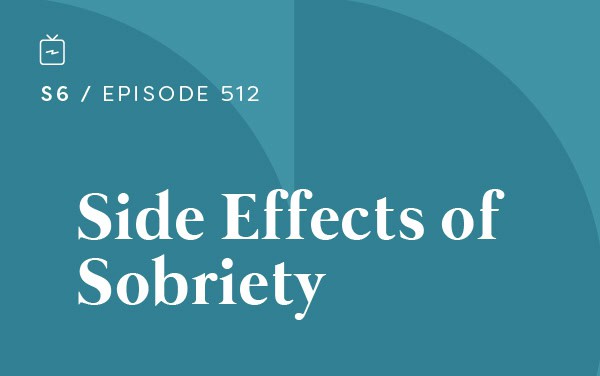
by Kris Oyen | Dec 9, 2024 | Podcast
Podcast: Play in new window | Download
Subscribe to the Recovery Elevator Podcast Apple Podcasts | | More
Episode 512 – Side Effects of Sobriety
Today we have Tammy. She is 61 years old from San Diego, CA. She took her last drink on September 6th, 2021.
Sponsors for this episode:
Better Help – code ELEVATOR for 10% off of your first month
Registration for Dry January is now open. When you sign up for Restore, you not only get access to the course, but you also get access to the whole Café RE community. If you sign up in December, you get access to the community for the rest of December and all of January. This is Recovery Elevator most intensive alcohol-free course. We will meet 14 times in January and it’s all about accountability.
Free Relapse Prevention Plan
[04:26] Thoughts from Paul:
Paul recently came across a post from someone who recently quit drinking, and they included a list of things they no longer suffer from. Or this could be said that these are the possible side effects of sobriety.
Paul shares the extensive list ranging from the loss of anxiety and depression to improvements to their body – both functions and appearance.
Life is hard in the first place, and you layer on just a couple of the ailments listed, then you’re living life in hard mode. That list really drives the point home that alcohol is taking way more than it is giving.
Paul is a big fan of pen to paper, pro and con sheets, all that jazz. He suggests writing down for yourself what you’ve experienced when you take some time off booze and imagines it’s going to look similar to the list he just shared.
[08:30] Paul introduces Tammy:
Tammy is 61 years old and lives near San Diego. She is married and together they have six adult children. She worked in advertising before having children and after they were older, she became a real estate agent. For fun, Tammy started writing a book about her alcohol-free journey, and also enjoys researching her ancestry.
Tammy says her drinking began as typical binge drinking on the weekends in high school and then escalated a bit in college. After graduating she began to work in advertising where drinking during the day was normal. Tammy’s drinking cut back after she started having her children. She says she didn’t drink very often while raising her daughters.
After turning 40, Tammy began allowing herself a glass of wine at the end of the day. It was used as a reward for making it through the day with three young children. After the financial crisis, Tammy and her husband had to sell their dream house. There was a lot of strain on their marriage as well and they eventually divorced. Finding herself alone raising three daughters, Tammy would start drinking more.
After she began dating her current husband, Tammy says her drinking slowed down. He was sober but didn’t mind that she drank. After a while they got engaged and moved in together. Tammy says things were going great and then COVID lockdown found the family coming and going a lot, and it was a party all the time. She was exhausted all the time and even though she knew it was due to her drinking she wasn’t ready to quit. Over the summer after their wedding, she had some failed moderation attempts and there were a lot of birthday parties. After the last party around Labor Day, Tammy had a moment of clarity where she knew she had to quit.
After Tammy had quit, she started reading books and listening to podcasts. She wasn’t interested in AA although she does see it’s value and it helped her husband. The scientific information blew her away, Tammy says. She slept a lot in the first month of sobriety. After that, she began to notice her general health was improving. The value of hearing people’s stories on podcasts has helped Tammy a lot. By writing her book, she wants to help lift people up and show them the way.
Tammy’s parting piece of guidance: get quiet and just listen to yourself and believe in yourself.
Recovery Elevator
You took the elevator down; you got to take the stairs back up.
We can do this.
I love you guys.
RE merch
Café RE
Recovery Elevator YouTube
Sobriety Tracker iTunes
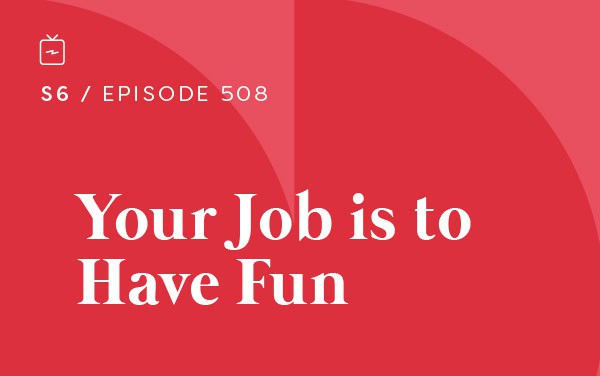
by Kris Oyen | Nov 11, 2024 | Podcast
Podcast: Play in new window | Download
Subscribe to the Recovery Elevator Podcast Apple Podcasts | | More
Episode 508 – Your Job is to Have Fun
Today we have Fanny. She is 39 years old and lives in Wilmington, NC. She took her last drink on February 3rd, 2021.
Recovery Elevator is going back to Peru in October 2025. On this 10-night, 11-day trip of a lifetime, we will be hiking the Inca Trail and participating in two service projects. Registration opens January 13th and closes May 30th in order to secure tickets to the Inca Trail.
Sponsors for this episode:
Better Help – code ELEVATOR for 10% off of your first month
Sober Link – $50 off of device using this link
[01:43] Intro:
Better Rhodes recently sent Paul a couple of drinks to sample, and he shares that they were all fantastic. Gone are the days when O’Doul’s was the only alcohol-free option around. Paul says his favorite was Hiyo.
Better Rhodes – code RECOVERYELEVATOR15
[04:05] More thoughts from Paul:
Paul shares an article called Benefits of Play for Adults that shares the importance of being playful as adults. Remember that as a child, you were naturally playful without alcohol. Somewhere along the way we forget how to be playful and then we link alcohol with having fun.
This is great news for healing. Just like some of us have goals to hit a certain amount of steps in our day, you should aim to have at least a certain amount of laughs. Laughter is the best medicine and some of the side effects may be a boost to your immune system, release of endorphins, reduction of stress and anxiety and improvement of mood.
Your job, listeners, is to have fun. The healing pathway will contain challenges, but overall, it cannot be more stressful or boring than when you were drinking. You need to have fun and please don’t take yourself too seriously at any moment on this journey.
[09:48] Paul introduces Fanny:
Fanny has lived in NC most of her life and recently proposed to her fiancé who she plans to marry in March. For her profession, she says it’s all things food. Recipe developer, food writer and content creator. For fun, Fanny enjoys outside activities such as biking, hiking and walking her dogs.
During high school and college, Fanny says she drank like any other college kid and always enjoyed a party. Over time, Fanny found herself using alcohol to push down negativity and some lingering questions about her sexuality.
When Fanny moved to California for a while, she said drinking was fun again. She says she learned a lot about herself there including that she didn’t want to be an actress, her real passion was food, and she found herself wanting to return to North Carolina.
After moving back, Fanny met someone, and they eventually married. Drinking was a big part of their lifestyle. They moved to Illinois for his job right before the pandemic and found themselves isolated without family and friends. Fanny says the drinking ramped up and there were some incidents that gave her a lot of guilt and shame. They eventually divorced and Fanny moved back to NC.
Fanny started a relationship with a friend from college who expressed their concerns over drinking because their ex had an issue. Fanny assured her that she was not like she was in college. After a two-day bender, it was Fanny’s girlfriend that helped her call her parents and get some help. Fanny was able to find a rehab in Western NC with the help of her therapist.
Fanny says the first few days were tough, but eventually she settled in and became a sponge trying to learn everything about the addiction. Through her rehab she was exposed to several different recovery modalities and found she enjoys Recovery Dharma the most. She really identifies and enjoys the Buddhist perspective on recovery.
Recovery Elevator
We took the elevator down; we got to take the stairs back up.
We can do this.
Café RE – promo code OPPORTUNITY waives the set up fee
RE merch
Recovery Elevator YouTube
Sobriety Tracker iTunes
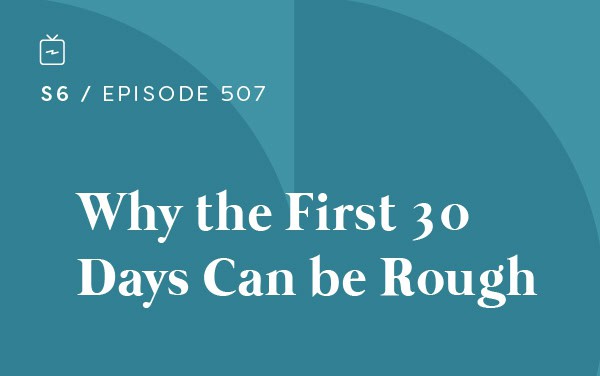
by Kris Oyen | Nov 4, 2024 | Podcast
Podcast: Play in new window | Download
Subscribe to the Recovery Elevator Podcast Apple Podcasts | | More
Episode 507 – Why the First 30 Days Can be Rough
Today we have Jason. He is 56 years old and from Minneapolis, MN. He took his last drink on December 31st, 2021.
Sponsors for this episode:
Better Help – code ELEVATOR for 10% off of your first month
[01:06] Intro:
In today’s episode you are going to hear Jason say that he doesn’t identify as an alcoholic. How many alcoholics do you think have been interviewed on the podcast? Paul says the answer is zero.
Zero because whenever people hear the word alcoholic, the first things that come to mind are homeless, living under a bridge, brown paper bag. Zero guests have fit this description.
Studies show that only 5% of alcoholics are actually homeless, living under a bridge, etc. However we are all walking the same path regardless of how far it takes us.
It’s never too late to get help, and we’ve got your back. The real villain here is alcohol, not the addict. In 2024, you can be alcohol-free, you can be sober, you can be sober curious, you can be an alcoholic in recovery. At the end of the day it’s all about getting honest with yourself.
[04:16] More thoughts from Paul:
Drinking can be challenging in the first 30 days. Paul shares with us a piece about this that uses an analogy comparing our brain and neurotransmitters to toy boxes and toys.
During recovery, our brain is resetting itelf now that the alcohol is halted. This will take time. A couple of week to a couple of months. Go slow, be kind to yourself and let the body heal. Your part is not drinking, and the universe solves the other part which is time.
[07:36] Paul introduces Jason:
Jason has lived in Minnesota all of his lfe, currently in Minneapolis. He is married with two sons, 14 and 12. He works in sales. Jason says for fun, he is getting into golf and he is a pilot who enjoys flying for fun as well as for business.
Jason says he had his first drink as a junior in high school. It wasn’t a remarkable event but he ended up becoming a typical drinker: parties and weekends, etc. He got married when he was 21 to his first wife, and she did not drink. Therefore Jason didn’t drink much during his 20s. The company he worked in sales for, had a big drinking culture that Jason started to get more involved in. Around the same time his marriage wasn’t working out and he found himself divorced and drinking more often afterwards. At the time it didn’t feel out of control although in hindsight Jason feels it was excessive – almost daily and every weekend complete with hangovers.
In his 40s Jason met his current wife who is a social drinker. His drinking continued, but he did begin to question it. He began to try a lot of methods of moderations, some of them worked for him but it became exhausting after doing it for about five years. On December 17th of 2021, he had decided he was going to quit. He says he drank a lot for the first week or so after that as a reminder to himself of how bad it was.
On New Year’s Eve, Jason had two beers and ended up dumping out half of his third. He was done. Jason said the first month went well and the biggest thing he missed was having something to look forward to. Once he made the decision it wasn’t that hard for Jason.
Jason shares that he read a lot and listened to podcasts which really helped him. He mentions the book Almost Alcoholic which helped him identify that he was in the middle ground with his drinking. Jason has had no desire to return to drinking and his cravings were few and far between over the last nearly three years. Going forward, Jason wants to find more hobbies and things he enjoys doing with his kids. He enjoys the subtle calm that is in his life now.
Jason’s parting piece of guidance: you don’t have to identify as an alcoholic for quitting to be the best option for you.
Recovery Elevator
We took the elevator down, we got to take the stairs back up.
I love you guys.
We can do this.
Café RE – promo code OPPORTUNITY waives the set up fee
RE merch
Recovery Elevator YouTube
Sobriety Tracker iTunes
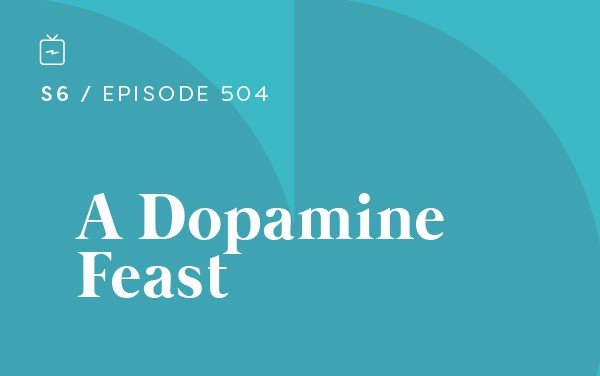
by Kris Oyen | Oct 14, 2024 | Podcast
Podcast: Play in new window | Download
Subscribe to the Recovery Elevator Podcast Apple Podcasts | | More
Episode 504 – A Dopamine Feast
Today we have Don. He is 44 and lives in Clarkson, MI. He took his last drink on November 15th, 2021.
Sponsors mentioned in this episode:
Better Help – code ELEVATOR
The theme for this podcast is I am Here, I am Whole. What does that mean? It means, that in this moment, the only moment that has ever mattered or ever existed, I choose to be here, and I will view myself as whole.
Please don’t kick the can of wholeness, authenticity and self-love down the road. It has to be now.
[04:22] Thoughts from Paul:
Paul shares that he really enjoyed the book Dopamine Nation by Dr. Anna Lembke, minus one part of it that talks about a dopamine fast as a way to beat an addiction.
A recent NYT article summarizes why Paul doesn’t like the dopamine fast idea. It has to do with the quote that “it’s less about quitting drinking, and more about creating a life that doesn’t require alcohol”. There are many healthier ways to release dopamine, such as hobbies you enjoy, that don’t involve your drug of choice. Trying new things helps us release dopamine as well.
The last paragraph of the article says “consequently, America’s problem isn’t that we’re a bunch of hedonists hooked on capitalism’s dopamine hits, it’s that so many of us aren’t able to get our social, physical and emotional needs met in healthy ways. Instead of a dopamine fast, we need a dopamine feast – one that makes us want experiences we actually like, rather than compulsively responding to craving”.
[08:36] Paul introduces Don:
Don is an anesthesiologist, and he lives in Clarkston, MI. He started enjoying traveling since his mid-30s and has been to 30 countries, five continents and heading to Antarctica at the end of the year. Don is a big fan of sports and roots for the teams out of Detroit.
Alcohol always seemed to have a positive light around it when Don was younger. Whether it was a gathering or party the adults seemed more relaxed, happy and silly. It always seemed like something to look forward to when he got older. Being more of a goody-two-shoes, Don says, he didn’t try alcohol until the summer after school ended. He recalls feeling like he was comfortable in his own skin and his racing thoughts relaxed. Don says he was immediately someone that couldn’t stop drinking once he started.
Don says his 20s were spent in school and would drink heavily maybe once a month. In his 30s after graduating and feeling he achieved all of his goals, he wondered “what’s next?” Don says that alcohol didn’t answer the question, but it prevented him from having to answer it. Don says that he realized he was gay as a young man and never wanted to deal with it. Drinking helped him push that away too.
COVID sped up the inevitable, Don says. Having more time off work due to less surgeries being performed; Don would start drinking more on his off days. Once work became busy again, he’s drinking continued where it was and started affecting his work.
When Don arrived at work still drunk after a Labor Day weekend binge, he says receiving a call from his boss was relief.
When Don started rehab, he knew he was going to need to address being gay in addition to having a drinking problem. After completing rehab, Don began attending a program for health professionals that gives him the accountability he needed.
Don says AA is a big part of his life now. He says he enjoys the community and accountability. He is testing out dating to see if it’s something that he wants to do. After falling in love with Costa Rica, he decided to build a house there. The greatest gift Don says he was given in sobriety is the ability to be present.
Don’s parting piece of guidance: Just start. You’ve got to start somewhere and if that’s rehab, than so be it. Take a break from your job, people will be much more supportive than you think they will.
Recovery Elevator
You took the elevator down, got to take the stairs back up.
I love you guys.
RE on Instagram
RE merch
Recovery Elevator YouTube
Sobriety Tracker iTunes







